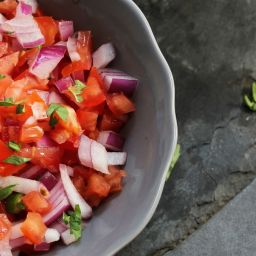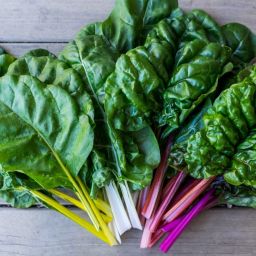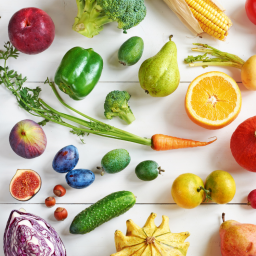My Vegetarian Child Is Going Off To Camp: How Can I Help Them Plan Meals?
August 7, 2018
From Lake Health
As a parent, you want your child to eat healthy and nutritious foods that give them the energy they need to play and grow. A plant-based diet is one of these options. Spending a week at camp is a tradition that many children love – it provides new adventures, fun friendships and a chance to enjoy activities independently from their parents. If your child follows a vegetarian or vegan eating style, you may worry he or she will go hungry at sleepaway camp. View these top tips for sticking to a plant-based eating style away from home from our registered dietitians with the Lake Health Integrative Medicine team:
Find options on the camp cafeteria menu
Spaghetti with meatballs, grilled cheese, scrambled eggs and hotdogs are often features of a camp menu. Vegetarian-friendly options may be limited to items like side salads or fruit at breakfast – or not featured on the menu at all.
Here are some plant-based options your child might find on the menu at camp:
- Oatmeal or whole grain cereal with fresh fruit.
- With milk allergies on the rise, chances are there will be a plant-based milk option on the menu – typically either soy or almond. If not, parents can ask the kitchen staff to supply it while their child is at camp.
- Whole grain bread or tortilla with peanut butter and jam.
- Baked beans are a good option for fiber and protein – just make sure they are not prepared with pork.
- Brown rice with beans or veggies.
Asking for double portions of plant-based sides can help keep your child full and ready for action. Remind your child to be mindful that they are eating enough balanced options.
Talking to staff
Many camps allow campers to list dietary preferences when registering or allow parents to pack food for children with food restrictions. Ask about the camp’s policies ahead of time to see how they can accommodate your child. Camps typically plan menus well in advance and can let you know what to expect at meals. Many camps are willing to make menu adaptations like these to help accommodate campers with dietary restrictions:
- Talk with the kitchen staff about making plant-based stir-fry recipes or vegetarian meals with a variety of veggies.
- Ask the kitchen staff if they can add tofu or extra beans to vegetarian meals. This way, campers will get the proper nourishment.
- Double up on whole grains! Eating more oatmeal and other whole grains will help your child feel fuller for longer. Talk with the kitchen staff to ensure they are offering whole grain options.
- Ensure kitchen staff will have fresh fruit readily available for campers – apples, bananas and oranges are easy favorites.
- Ask the kitchen staff to prepare spaghetti sauce with marinara and mushrooms or green peas instead of meatballs.
- Parents may send veggie hot dogs for the kitchen staff to keep on-hand. This way, vegetarian kids will not feel left out on hot dog days.
- For kids who don’t eat eggs or have an egg allergy, parents can request that the kitchen prepare tofu scramble in place of eggs.
- Many camps will have a veggie burger option for vegetarians.
Packing snacks and easy meals
You will likely need to send along some snacks to supplement camp cafeteria options, if the camp doesn’t feature vegetarian options. The camp office can also help store these snacks for your child, so they do not run out.
Here are some shelf-stable, nutritious options to pack:
- Trail mix with nuts, seeds and dried fruit. This provides a nice combination of healthy fats, fiber and protein.
- Individual nut butter packets also have a great amount of protein and healthy fats.
- Roasted chickpeas or edamame are packed with fiber and protein to help keep your child feeling full.
- Try single serving bags of air-popped popcorn for a light snack that is still packed with fiber.
- Boxes of whole grain crackers or rice cakes are good snacks that can be topped with nut butter.
- Granola bars, dried fruit or nut bars are great for a portable snack.
- Seaweed snacks are a very nutrient-dense option with omega-3 fatty acids.
- A box of whole grain cereal can be great for breakfasts or snacks.
- Individual serving-size bottles or cartons of shelf-stable, plant-based milk are also nice to have on-hand, especially for a late-night bowl of cereal.
The final takeaway
A week of side salads and specially packed snacks won’t derail your child’s summer of healthy eating. Planning ahead will ensure your child can stick to their vegetarian or vegan eating style with less stress.
Reference:
















